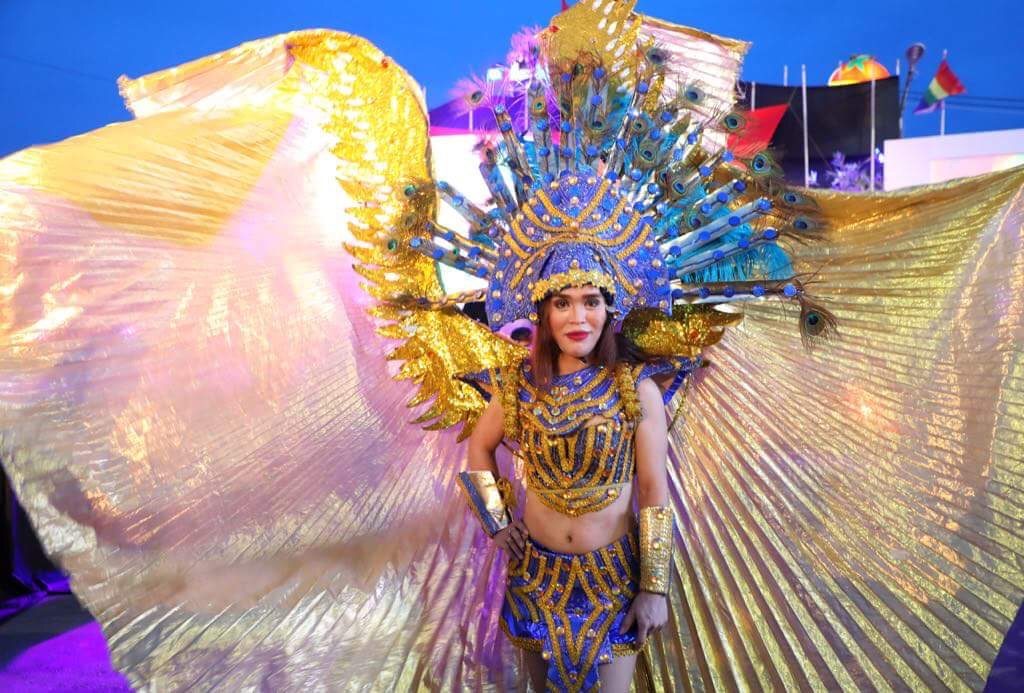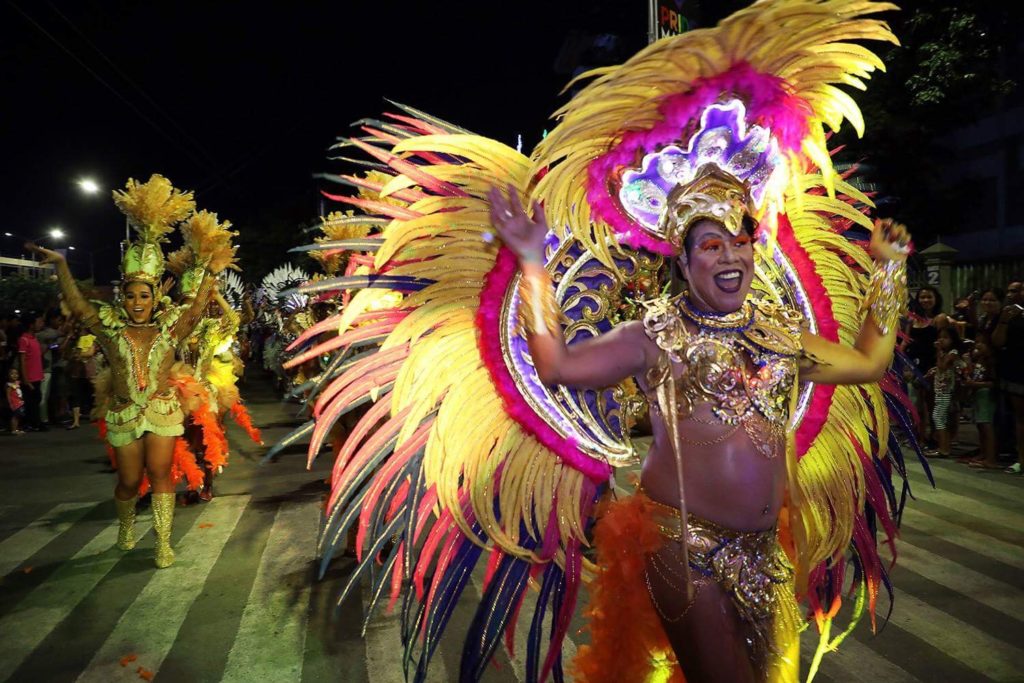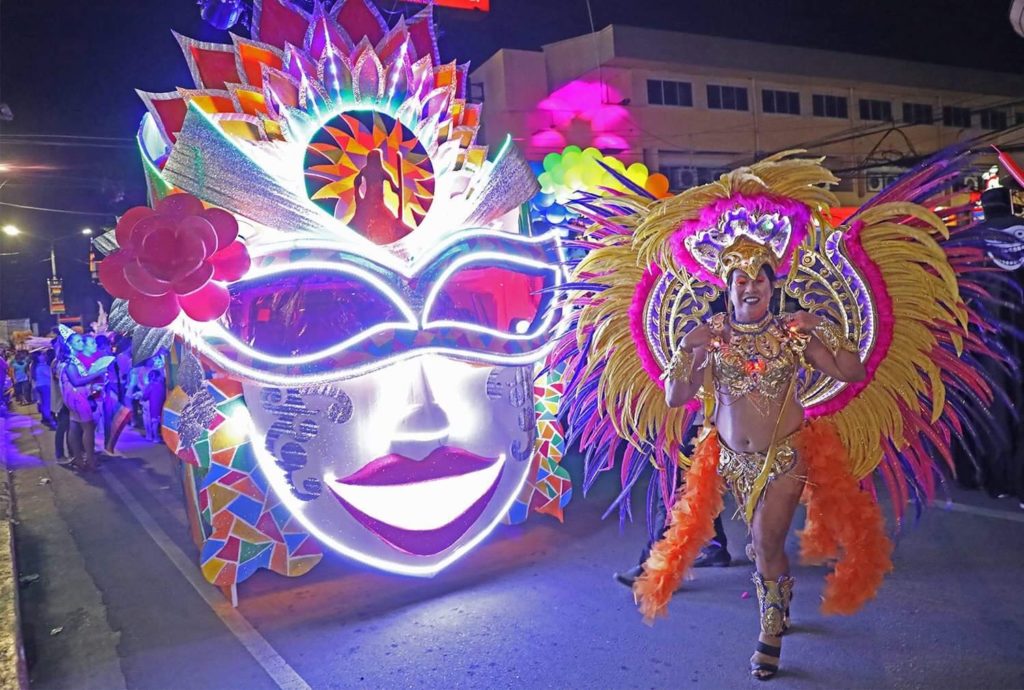PRIDE MARCH: Acceptance, not tolerance
In a country where conservative Catholics are the majority, finding a safe space to express one’s identity is not always easy for the Lesbian, Gay, Bisexual, Transgender, and Queer (LGBTQ) community.
Some, find it difficult to come out of his/her comfort zone.
And despite the paradigm shift to equality for LGBTQ individuals and changing views on homosexuality, being a member of the community still carries a stigma in the Philippines —- Asia’s avowed cradle of Christianity.
“I was really scared at first because you get bullied even with the slightest things and finding a safe place is not always easy,” said 24-year-old Julius Dela Serna.
Dela Serna found that safe place in a parade aimed to raise awareness on gender equality.
“Pride march has become a safe place for me, I found a haven and felt accepted,” said Dela Serna.
Thousands of people waving rainbow flags, while some hoisted equality banners, danced and marched on the streets of Mandaue City as they celebrated Pride Month last June.
Mandaue City’s Pride March held on June 24 filled the entire Heritage Plaza as dusk came.
LED screens lit up the vicinity, drawing smiles among members of the LGBTQ community.
People came on foot, on roller skates, and aboard cars and motorbikes.
Others rode spectacularly bedazzled floats, as hundreds of participants marched slowly on the cold Sunday evening along Mandaue Heritage Plaza going to Ibabao, A.C. Cortes st., heading to Plaridel St., and back to Heritage Plaza.
Many of the marchers, like one clad in a bikini with a rainbow-colored bottom and a pink top, captivated the crowd.
Another, a well-toned female on roller skates wearing a trikini that amply displayed her figure carried a sign that simply read “Love.”
“The rainbow flag dancing along the air brings hope and love to one another, smiles painted across everyone’s faces bring a dream of equality and acceptance with it,” said Dela Serna.
In the last decade, homosexuality in the Philippines has taken on a different form.
Gays are no longer recognized as resident beauty parlor lads or slapstick movie or television sidekicks.
Today, several members of the LGBTQ community are leaders, successful businesspeople, TV personalities, advocates, and politicians, among others.
While tolerant coexistence with the LGBTQ community is evident among heterosexual members of the society, lawyer Regal Oliva, a forefront warrior for LGBTQ rights in Cebu, believes that the fight still has a long way to go.
At the sidelines of Pride March, Oliva said that while the Filipinos’ open-mindedness towards the LGBTQ community has improved over the years, real acceptance is another story.
“There’s tolerance in the Filipino society. In fact, we are one of the most tolerant communities and countries in the world. But as to acceptance, not yet. We’re not yet there,” Oliva said.
“Because when you say acceptance, there should be legislation. There should be laws that should be passed in favor of the LGBT community,” he added.
Oliva, however, expressed appreciation for the many ‘baby steps’ towards LGBTQ acceptance in the country.
“Everyday is an important day for the LGBTQ community because there is already inclusion. There is equality. There are conversations and discussions that we are trying to meet. That is what we are celebrating,” Oliva said.
He pointed to the great difference in how society perceives a member of the LGBTQ group, then and now,
that is directed for the betterment of the homosexual, heterosexual and intersexual sectors.
“Twenty years ago when I started the movement on my own, the close-mindedness of the community was way too much. Schools weren’t welcoming among LGBT,” said Oliva.
“Right now, schools academic institutions are very much inclusive. They welcome the LGBT community. What I’m saying is that there is a change already in the generation,” Oliva added.
However, for Oliva, real changes could only move forward if laws on gender equality were passed.
Discussions and Conversations
The most recent effort to establish a legal basis for the acceptance of LGBTQ members was through the Sexual Orientation and Gender Identity and Expression (Sogie) bill.
The bill, which has been in and around Congress for nearly two decades, has reached third and final reading twice, in 2011 and in 2017.
Sogie or the Anti-Discrimination Bill, is still pending at the Senate with a slim chance of being passed, according to Senate President Vicente ‘Tito’ Sotto.
The LGBTQ community is poised to release a statement urging the Senate to open plenary discussions and conversations regarding the bill.
“We’re calling for the Senate to pass laws that will protect us. Whether we like it or not, the LGBT community has special needs and these needs have to be addressed,” Oliva said.
Passing the Sogie Bill, according to Oliva, will put an end to all forms of discrimination in the academe, professional or corporate communities and in sociopolitical affairs.
“We will not be judged by our gender orientation or sexual identity and expression. Nobody shall catcall, harass or bully us because we’re equal. That law aims to protect us. No law, as of today, has been protecting the Filipino LGBTQ community,” he added.
The lawyer said that the bill would also be an avenue for the promotion of the health of LGBTQ members.
Like Oliva, 18-year-old Mark Pardoncillo, a member of the Bulacao Empowered LGBTQ Association (BELA), has long been an active supporter of Cebu’s LGBTQ community.
“As a member of the group, I want to break the stigma that LGBTQ brought about HIV because when we speak of HIV, society easily misjudges those who tested positive,” said Pardoncillo.
Through Bela, Pardoncillo plans to conduct discussions to break the stigma on Human Immunodeficiency Virus (HIV).
“Being gay is a human reality, since we are living in a democratic country, we stand with our rights because LGBTQ rights are also Human Rights,” Dela Serna, for his part, said.
“We are not simply doing this because we want to, we are doing this because we take part in a change that all of us aspire,” he added.
Like every member of the LGBTQ community, Dela Serna, Pardoncillo and Oliva belong to the human society and it isn’t “tolerance” that they need but real, honest to goodness, acceptance.
https://web.facebook.com/cebudailynews/videos/10156732741224589/
Disclaimer: The comments uploaded on this site do not necessarily represent or reflect the views of management and owner of Cebudailynews. We reserve the right to exclude comments that we deem to be inconsistent with our editorial standards.



